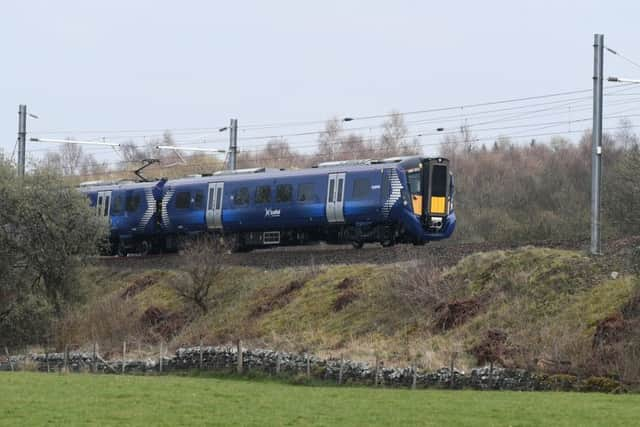ScotRail named and shamed as one of the worst companies for compensation claims
Now, to add insult to injury, troubled train operator ScotRail has been named as one of the most difficult companies for passengers to claim compensation.
The company is the joint worst offender for its complicated and lengthy compensation claims processes, according to consumer watchdog Which? – demanding 24 pieces of information before considering a customer’s case.
Advertisement
Hide AdAdvertisement
Hide AdInvestigators looked at the online claims forms of 24 rail operators and found they required between ten and 24 pieces of information from passengers seeking compensation for delayed or cancelled services – creating an unfair and fragmented system that treats passengers differently depending on which service they use.


ScotRail was the joint worst for the sheer volume of information required, alongside four other operators. In the analysis, the five worst train companies each required passengers to submit 24 different pieces of information about their ticket in this part of the form, such as whether it was a paper ticket, the cost, class, how the ticket was paid for, whether it was at peak time and the dates for which the ticket was valid.
Yet most of this information could be found clearly displayed on a photo of the paper ticket – which 23 out of 24 train companies require to be uploaded as proof of purchase.
The news comes in the wake of mass disruption on Scotland’s railways as many services have been delayed or cancelled amid staffing shortages in recent months. The rail operator has been issued with two remedial notices since December due to the ongoing problems.
Alex Hayman, Which? managing director of public markets, said: “It’s clear this fragmented and confusing compensation system leads to people losing out on a lot of money when they have already suffered enough from unacceptable levels of delays and cancellations. The technology exists to deliver compensation automatically, but the industry continues to drag its heels, while benefiting from a system that deters passengers from claiming the money they are owed.
“Passengers want to see swift changes, so the Scottish Government must prove it is serious about putting them first by ensuring that automatic compensation is introduced across the network.”
Which? has called for the rail compensation system to be simplified by the introduction of automatic compensation. Passengers claim for only a third of journeys where money is owed for delays and cancellations, with many saying the process is too difficult or time consuming.
Six of the train companies investigated asked people to provide the ‘from and to’ journey details more than once within the same form, while half of train companies also asked passengers why they were making a claim or the reason for the delay – the latter being information the train company is better placed to answer and should already hold.
Advertisement
Hide AdAdvertisement
Hide AdA ScotRail spokesman said the national Delay Repay Guarantee ensures that customers are compensated when their journey is delayed by 30 minutes or more. He said: “We are absolutely committed to providing the best possible service for our customers and our Delay Repay Guarantee is at heart of that approach. We know how much of an inconvenience it is to customers when things don’t go to plan.”